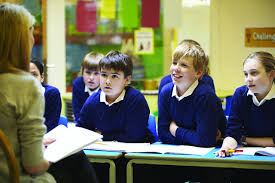Professores estão preparados para atender autistas e superdotados?
(Text in Portuguese and in
English)
O contexto escolar é
repleto de diferentes especificidades e necessidades educacionais que nem
sempre são compreendidas pelos professores (Peterson, 2014; Piske, 2018, 2020;
Piske & Kane, 2020).
O conjunto de
especificidades que os estudantes podem apresentar requer compreensão. A ausência dessa compreensão pode acarretar muitos danos para todos, principalmente para
os estudantes que nem sempre recebem o atendimento adequado (Piske &
Stoltz, 2020a, 2020b).
Então, muitos professores
podem sim confundir autistas com superdotados uma vez que existem crianças com
o transtorno do espectro autista com leitura precoce e um fascínio em aprender
números, demonstrando um alto potencial (Assouline et al. 2008).
Há casos que autistas
podem apresentar uma síndrome chamada hiperlexia,
muitas vezes caracterizada como elemento do autismo, que envolve a capacidade
de leitura precoce e a obsessão por números e letras (The
national autistic society, 2021).
Contudo, ainda que essas crianças
autistas apresentem essa capacidade precoce de ler e aprender letras e números,
elas podem ter várias características relacionadas ao transtorno do espectro
autista. Esse fato pode confundir ainda mais os professores, principalmente
se eles não conhecem o autismo e muito menos a superdotação.
Como conhecer mais sobre o autismo e sobre a superdotação?
Clique aqui nesse post e saiba mais!
Para conhecer a superdotação, leia também
o livro a seguir! Esta obra poderá tirar várias dúvidas sobre como entender e
trabalhar com crianças com alto potencial.
Há capítulos em português, inglês e
espanhol!
Referências:
Assouline, S. G.; Nicpon, M.
F; Colangelo, N.; O’Brien, M. (2008). The Paradox of Giftedness
and Autism. https://files.eric.ed.gov/fulltext/ED535140.pdf
Peterson,
J. S. (2014). Paying Attention to the Whole Gifted Child: Why, When,and How to
Focus on Social and Emotional Development. In F. H. R. Piske, J. M. Machado, S.
Bahia & T. Stoltz (Eds.). Altas
habilidades/Superdotação (AH/SD): Criatividade e emoção. [Giftedness:
Creativity and emotion]. (pp.45-66). Curitiba: Juruá.
Piske,
F. H. R. (2018). Altas habilidades/superdotação (AH/SD) e criatividade na
escola: o olhar de Vygotsky e de Steiner. Tese de Doutorado em Educação,
Universidade Federal do Paraná, Curitiba/PR.
Piske, F. H. R. (2020). The
importance of socio-emotional development of gifted students. In F. H. R. Piske, T. Stoltz, A. Rocha & C. Costa-Lobo
(Eds.). (2020). Socio-Emotional Development and Creativity of Gifted
Students. Coimbra: Imprensa da Universidade de Coimbra.
Piske, F.
H. R. & Kane, M. (2020). Socio-emotional development of gifted students:
educational implications. In F.
H. R. Piske, T. Stoltz, E. Guérios,
D. Camargo, A. Rocha, & C. Costa-Lobo (Eds.), Superdotados e talentosos: Educação, emoção, criatividade e
potencialidades [Gifted and talented: Education, emotion, creativity, and
potentialities] (pp. 195-206). Juruá.
Piske, F.
H. R. & Stoltz, T. (2020a). Altas
Habilidades/Superdotação (AH/SD) e Criatividade: Contribuições do
Sociointeracionismo de Vygotsky e da Pedagogia Waldorf de Rudolf Steiner.
Curitiba, Juruá.
Piske, F. H. R., & Stoltz, T.
(2020b). Meeting the socio-emotional dimension of gifted students based on
Vygotsky. Culture & Psychology. https://doi.org/10.1177/1354067X20936929
The national autistic society. (2021). What is autism? https://www.autism.org.uk/
Can teachers confuse autistic students with gifted ones?
The school context is full
of different specificities and educational needs that are not always understood
by teachers (Peterson, 2014; Piske, 2018, 2020; Piske & Kane, 2020).
The set of specificities
that students can present requires understanding and the lack of that
understanding can cause a lot of damage for everyone, especially for students
who do not always receive adequate care (Piske & Stoltz, 2020a, 2020b).
So, many teachers can
rather confuse autistic students with gifted ones since there are children with
autism spectrum disorder with early reading and a fascination with learning
numbers showing a high potential (Assouline et al. 2008).
There are cases where
autists may have a syndrome called hyperlexia, often characterized as an
element of autism, which involves the ability to read early and obsess over
numbers and letters (The national autistic society, 2021).
However, even though these
autistic children have this early ability to read and learn letters and
numbers, they can have several characteristics related to autism spectrum
disorder, and this fact can confuse teachers even more, especially if they are
unaware of autism and very less giftedness.
How to learn more about autism and giftedness?
Click here in this post and learn more!
To learn about giftedness,
also read the following book! This book may answer several questions about how
to understand and work with gifted and talented children.
There are chapters in
Portuguese, English and Spanish!
References:
Assouline, S. G.; Nicpon, M.
F; Colangelo, N.; O’Brien, M. (2008). The Paradox of Giftedness
and Autism. https://files.eric.ed.gov/fulltext/ED535140.pdf
Peterson,
J. S. (2014). Paying Attention to the Whole Gifted Child: Why, When,and How to
Focus on Social and Emotional Development. In F. H. R. Piske, J. M. Machado, S.
Bahia & T. Stoltz (Eds.). Altas
habilidades/Superdotação (AH/SD): Criatividade e emoção. [Giftedness:
Creativity and emotion]. (pp.45-66). Curitiba: Juruá.
Piske,
F. H. R. (2018). Altas habilidades/superdotação (AH/SD) e criatividade na
escola: o olhar de Vygotsky e de Steiner. Tese de Doutorado em Educação,
Universidade Federal do Paraná, Curitiba/PR.
Piske, F. H. R. (2020). The
importance of socio-emotional development of gifted students. In F. H. R. Piske, T. Stoltz, A. Rocha & C. Costa-Lobo
(Eds.). (2020). Socio-Emotional Development and Creativity of Gifted
Students. Coimbra: Imprensa da Universidade de Coimbra.
Piske, F.
H. R. & Kane, M. (2020). Socio-emotional development of gifted students:
educational implications. In F.
H. R. Piske, T. Stoltz, E. Guérios,
D. Camargo, A. Rocha, & C. Costa-Lobo (Eds.), Superdotados e talentosos: Educação, emoção, criatividade e
potencialidades [Gifted and talented: Education, emotion, creativity, and
potentialities] (pp. 195-206). Juruá.
Piske, F.
H. R. & Stoltz, T. (2020a). Altas
Habilidades/Superdotação (AH/SD) e Criatividade: Contribuições do
Sociointeracionismo de Vygotsky e da Pedagogia Waldorf de Rudolf Steiner.
Curitiba, Juruá.
Piske, F. H. R., & Stoltz, T.
(2020b). Meeting the socio-emotional dimension of gifted students based on
Vygotsky. Culture & Psychology. https://doi.org/10.1177/1354067X20936929
The national autistic society. (2021). What is autism? https://www.autism.org.uk/



